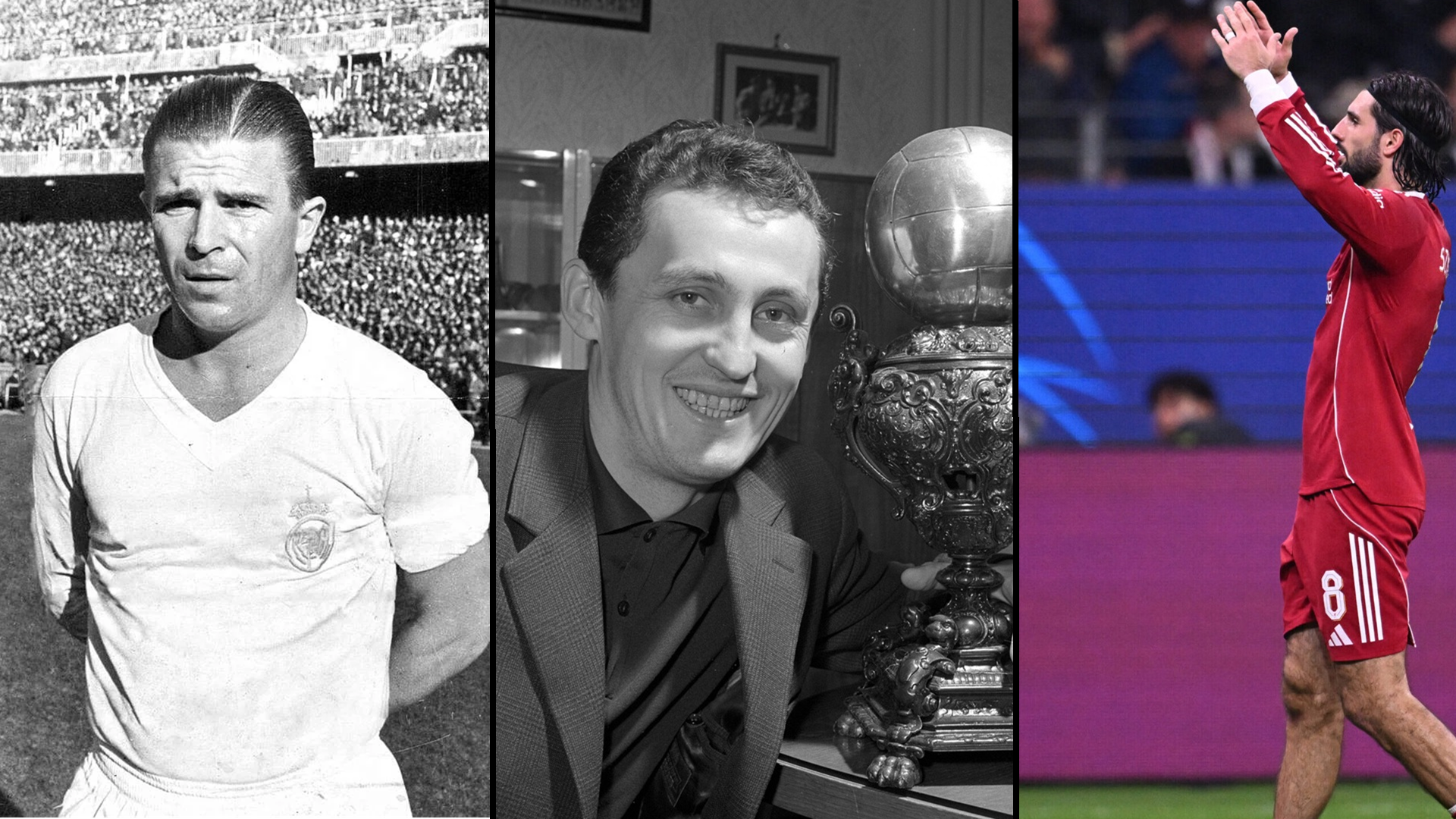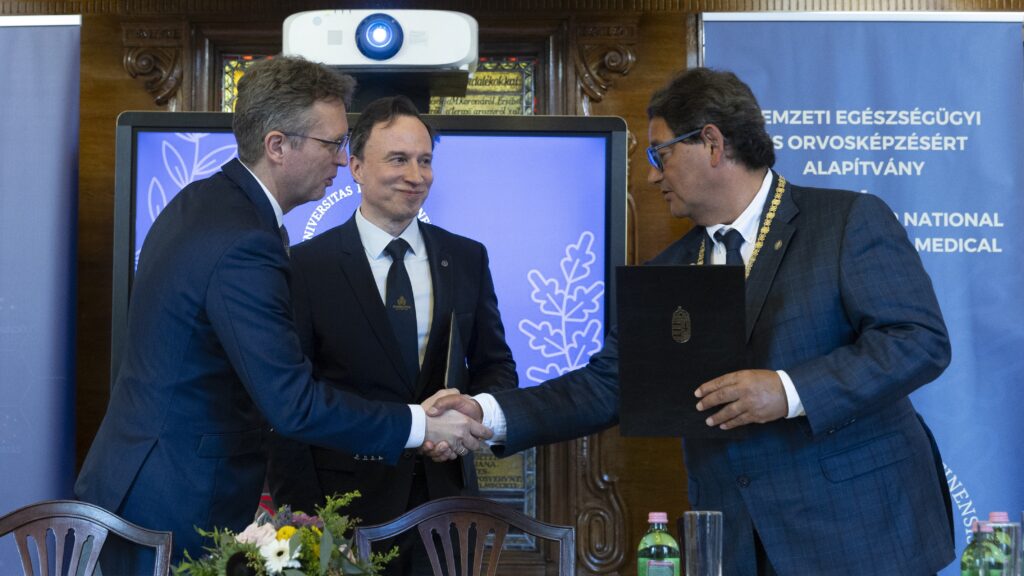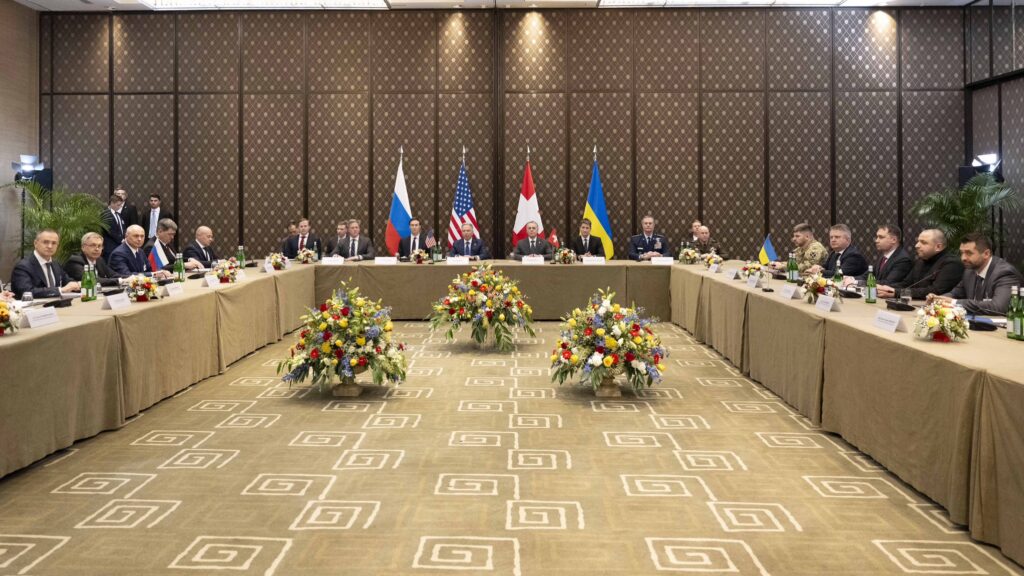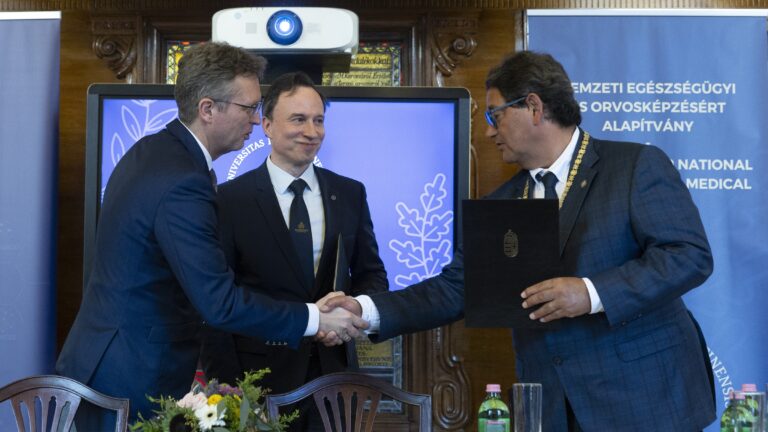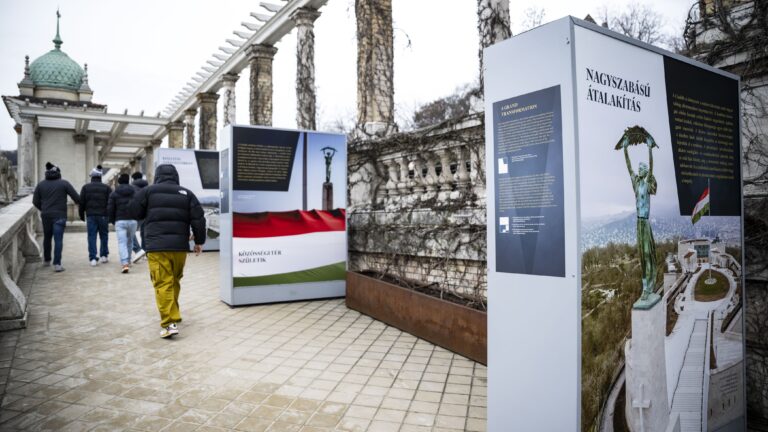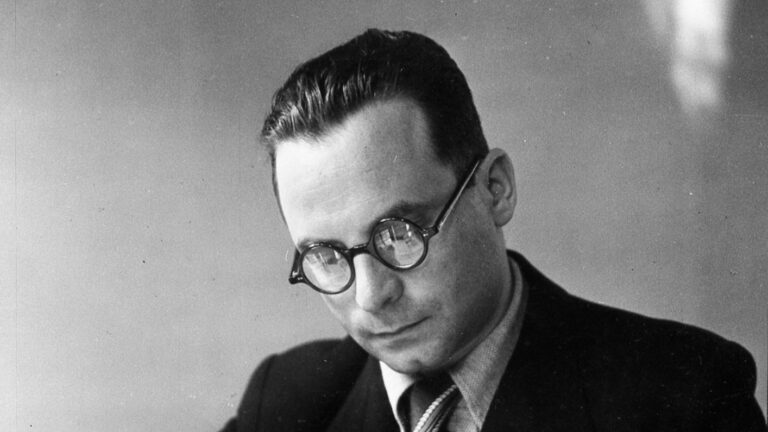Today is the 72nd anniversary of what is known in Hungary as ‘The Game of the Century’, Hungary beating England 6–3 at Wembley Stadium in an international friendly. Since 1993, 25 November has been designated as the Day of Hungarian Football in the Country.
On that occasion, we decided to list the 20 greatest footballers ever who got to play in the Hungarian National Team’s jersey.
Before we get to our list, here are a few points to bear in mind. As you might notice, it overwhelmingly features players from the last century, and even more disproportionately from before 1990. That is not due to some deliberate romanticization of the past, a sentimental attachment to a time passed. Sports, especially ones that are not scored by judges, is a very objective field. Hungary bears the distinction of being one of the just 13 nations to reach a FIFA World Cup final. Unfortunately, they are also one of the three nations that made it there more than once but failed to win the coveted trophy (alongside the Netherlands and Czechoslovakia).
However, Hungary played their two World Cup finals in 1938 and 1954. In addition, they got a third-place finish in the 1964 European Nations’ Cup, the equivalent of today’s UEFA European Championship.
To get to the point, Hungarian football was simply a lot better before the tail end of the last century relative to other nations. This goes to club football as well. Ferencváros won the only major international trophy for a Hungarian team in 1965, beating Juventus from Italy in the Inter-Cities Fairs Cup final, the predecessor to today’s UEFA Europa League. Ferencváros’s fierce local rivals Újpest made it to the final in the same competition in 1969 (but lost to Newcastle United). FTC got to the last game of the now-defunct European Cup Winners’ Cup in 1975, where they lost to Dynamo Kyiv. Meanwhile, the last appearance in a European Cup final for any Hungarian team was made by Videoton in 1985, who played a two-legged match-up against the legendary Spanish club Real Madrid for the UEFA Cup trophy (a more recent Europa League predecessor). They lost the home game 3–0, but won 1–0 in Madrid, resulting in a 3–1 aggregate score for the Spanish side.
So, now that the context is explained for the lack of proportion for players from different time periods on our list, and without any further ado, here are the 20 greatest Hungarian footballers of all time.
1. Ferenc Puskás
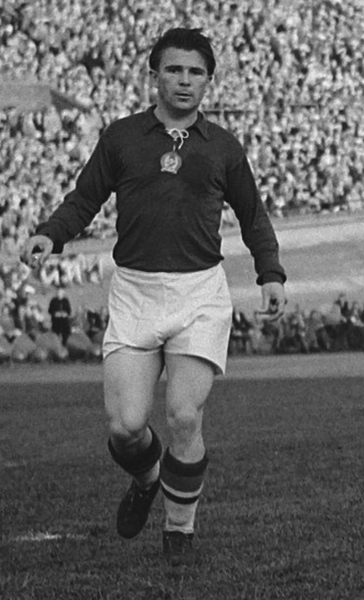
Without any reasonable doubt, Ferenc Puskás is the greatest Hungarian to ever play the great sport of football. He is now not only the namesake of the Hungarian national stadium in Budapest (which is set to host the UEFA Champions League final next year), but also of FIFA’s annual award for the most impressive goal scored in the calendar year.
He won Olympic gold with Hungary in Helsinki, Finland in 1952—before the European Championship’s introduction in 1960, which is held the same time as the Summer Olympics, the football competitions in the Olympics had a lot more prestige. Two years later, in 1954, he led his national team in the World Cup final in Bern, Switzerland. Alas, he was out for most of the competition due to an injury, and only returned for the final against West Germany after the group games. Hungary took a two-goal lead early into the game, and even got one disallowed by an obviously wrong offside call, but Germany fought back. In what is known in the football world as ‘The Miracle of Bern’, they came back to win 3–2, giving their nation its first World Cup victory, despite losing to Hungary 8–3 in the group stage prior. Puskás scored the opener for Hungary in the 6th minute of the historic match.
He also scored twice in the 6–3 victory over England, the match that we are celebrating today. After the 1956 Hungarian Revolution, however, he fled the country and restarted his career in Spain. His 84 goals scored for Hungary in 85 games remains an unbearable record for the Hungarian national team.
The ‘Galloping Major’ played for the Spanish superclub Real Madrid between 1958 and 1966. With them, he won the Spanish league five times, and the European Cup three times. In the 1960 EC final against the German side Eintracht Frankfurt, he scored four goals in the 7–3 victory. No other player has ever scored four times in the final of the primary European club competition. On top of his five Spanish league titles, he won the Hungarian league with Budapest Honvéd five times as well. His Golden Boot tally also stands the same in the Hungarian and Spanish leagues, with four each.
2. József Bozsik
Bozsik was Puskás’s teammate at both Honvéd and the Hungarian national team, so he too played a key role in the achievements listed above: the 1952 Olympic gold, the 6–3 victory over England in 1953, and the World Cup final in 1954. However, he did not leave the country oppressed by the communist regime after 1956, which allowed him to collect more caps than Puskás for Hungary. He ended up playing 101 games for the national team, which stood as a record for a long time.
Since he played in midfield, his scoring record is evidently not as impressive as Puskás’s: he scored 11 goals in those 101 games, but his influence on the pitch was immense.
He stayed loyal to his boyhood club, Budapest Honvéd, throughout his career. However, he never won another league title after Puskás left, thus his tally has remained the same with five titles. He did play in the 1958 World Cup as well, where Hungary ended up exiting after the group stage behind hosts and future finalists Sweden, and Wales; and even found the net in the 1–1 against the Welsh.
3. Flórián Albert
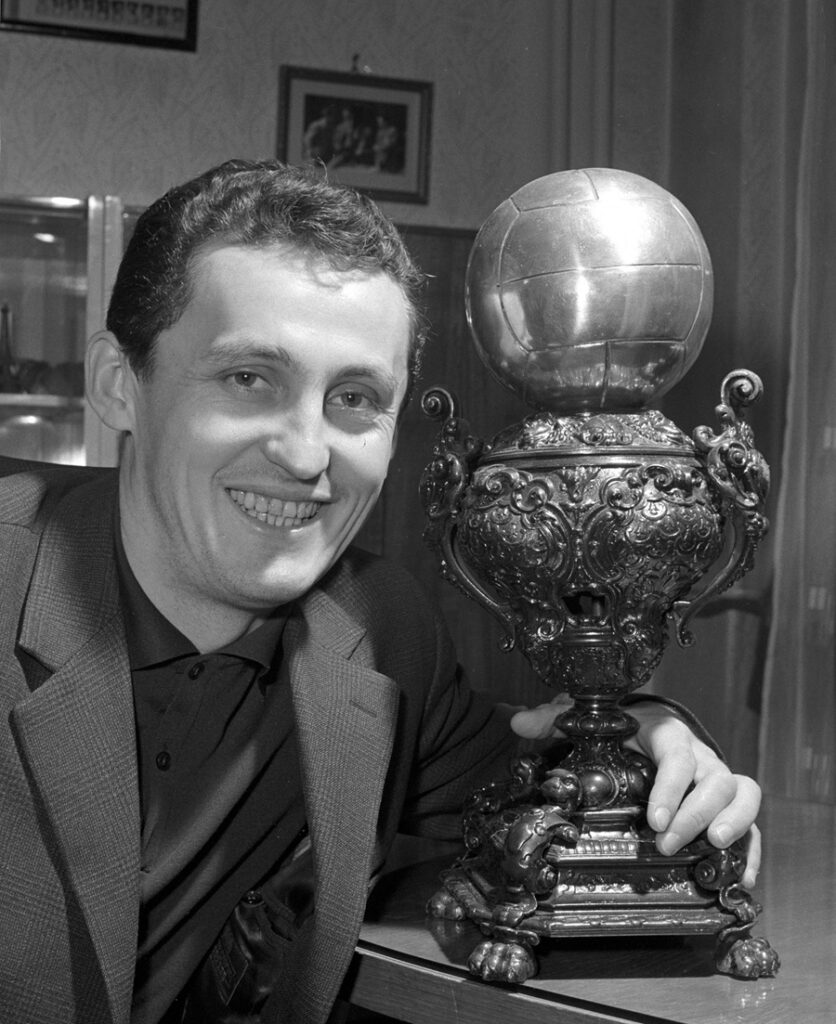
He is Hungarian football’s only Ballon d’Or winner, having been awarded the most coveted individual title in the sport in 1967. He won the Inter-Cities Fairs Cup with Ferencváros two years prior, in 1965.
Albert was the most prominent figure in the generation following Puskás and the ‘Mighty Magyars’. He scored the winner against England in the 1962 World Cup group match, which he then followed up with a hat-trick against Bulgaria in the next game. Hungary made it to the quarter-finals in the tournament in Chile; and his four goals earned him a shared top scorer title. At the next World Cup in England, he also gave a memorable performance, especially against reigning champions Brazil, although he scored no goals in the historic 3–1 victory. He also won a bronze medal with Hungary at the 1964 European Nations’ Cup in Spain.
Albert played for Ferencváros throughout his career, winning four league titles. The team’s stadium bore his name between 20007 and 2014. He scored 31 goals in 75 games for Hungary.
4. Sándor Kocsis
In Kocsis’s case, we’ll just lead with his amazing goal-scoring record for the Hungarian national team: he got 75 goals in just 68 games (!) on his tally! He scored 11 of those goals at the 1954 World Cup that ended in a runner-up finish for Hungary, five more than any other player in the tournament—thus, evidently, he won the tournament’s Golden Boot.
He started his career at Ferencváros, before transferring to Budapest Honvéd, where the bulk of the national team was playing. He too left the country after 1956, and found his way to FC Barcelona in 1958. With the blue-and-garnets, he won two La Liga titles, in addition to the one Hungarian league title he had won with FTC and the three Hungarian league titles he had won with Honvéd. Kocsis was also a member of the 1952 Olympic gold medalist Hungarian team.
5. György Sárosi
Sárosi was one of the key players in the first Hungarian team to make it to a FIFA World Cup final, in 1938 in France. He scored five goals in that tournament, including one in the final that brought Hungary to 3–2 against defending champions Italy. However, the game ended 4–2 to the Italians. Overall, he scored 42 goals in 62 games for Hungary.
On the club level, Sárosi spent 18 years playing for Ferencváros, his entire career, during which he won the domestic league five times and won the league’s Golden Boot three times.
6. Nándor Hidegkuti
Here’s another great from the Mighty Magyars team. Nándor Hidegkuti played in the centre forward position, and he did so often dropping back to the level of midfield to break the man-marking defence of the opposition—this was Hungary coach Gusztáv Sebes’s most famous tactical innovation. This move, ordering him deeper into the field, did not stop him from scoring three goals against England in the legendary 6–3 victory, including one in the very first minute. He has 39 goals in 69 games for Hungary in total.
As all the other players listed from his generation here, he too won an Olympic gold medal in 1952 and a bittersweet silver medal in the 1954 World Cup. On the club level, he is the first on our list not to play for either Ferencváros or Honvéd in Hungary: instead, he played for MTK Hungária (today known as MTK Budapest) for most of his career. He celebrated three league victories with them. After retiring, Hidegkuti went on to have a distinguished career as a coach as well, winning the European Cup Winners’ Cup with the Italian team Fiorentina in 1961.
7. Dominik Szoboszlai
He is one of the only two players still active who made our top 20 all-time list, and the only one still playing for the national team.
Dominik Szoboszlai is undoubtedly the biggest Hungarian football star of this century. He is a regular starter (although lately, in varying positions) in the English club Liverpool, which have a rich history and a massive international fanbase. He won the English Premier League, the most competitive and highest quality European domestic league, with the Reds in 2025. Needless to say, he is the first Hungarian player to do so.
He captained Hungary at the 2024 European Championship in Germany at the age of just 23. He played a crucial role in taking Hungary to the 2021 Euros as well, even scoring a last-minute winner against Iceland in the play-offs, but, alas, had to miss that tournament due to an injury.
Szoboszlai was signed by the Austrian club Red Bull Salzburg, known for their great track record for developing young talent, as a teenager. He then transferred to RB Leipzig in the German Bundesliga, before signing with Liverpool for €70 million in 2023. He made 61 appearances for Hungary, scoring 17 goals—however, in his case, those counters are still running.
8. Máté Fenyvesi
Fenyvesi headed the winner for Ferencváros in the 1965 Inter-Cities Fairs Cup final against Juventus, giving Hungarian football its only major international club trophy. To make that feat even more impressive, he did that on Juve’s home turf in Turin, Italy, as FTC agreed to waive their rematch in Budapest to be able to make it to a South American exhibition tour.
With the national team, Fenyvesi played in two World Cups (1962, Chile and 1966, England), and won a bronze medal in the 1964 European Nations' Cup. His national team record: 76 caps and 8 goals.
9. Gyula Grosics
Gyula Grosics was in goal for the Mighty Magyars team throughout the successes enumerated here many times before: the 1952 Olympic gold medal, the 6–3 victory over England at Wembley, and the 1954 World Cup final. After the loss to West Germany in the WC final in Switzerland, many Hungarian fans turned on him as they felt he was to blame for Helmut Rahn’s late winner (although it was by no means a classic goalkeeper howler). Despite that, three different major sports publications put him in their tournament all-star team (El Gráfico in Argentina, ESPN Deportes in the United States, and RCS in Italy).
Nicknamed ‘the Black Panther’ for his habit of wearing all black kits in games, he compensated for his not too intimidating 5’10 (178 cm) height with better positioning, and often leaving his line to clear or pick up loose balls, which was unusual for goalkeepers at the time. Grosics spent the bulk of his club career with Honvéd, just like many of his national team teammates. He was among those who stayed in Hungary after the revolution, allowing him to collect 86 caps. He won four Hungarian league titles.
10. Lajos Détári
The blond attacking midfielder was the most prominent player in the last Hungarian generation to play in a World Cup. He was on the pitch for Hungary at the 1986 Mundial in Mexico, where he scored in the 2–0 win over Canada, the last Hungarian goal in World Cup history to date. He ended his international career with 61 games and 13 goals for Hungary.
He was also in the first generation who had the opportunity to sign with Western European clubs without having to desert the country, as the softening communist regime allowed for that. Thus, Détári got to score the winner for Eintracht Frankfurt in the 1988 German Cup final from a free kick, for which he is fondly remembered by the club's fans to this day. He was signed by the Greek club Olympiakos for a then-world record transfer fee, 18 million German Marks, in the same year. Détári also spent a couple of seasons in the Italian Serie A, playing for Bologna, Ancona, and Genoa. Domestically, he mostly played for Honvéd, with whom he won the Hungarian league three times.
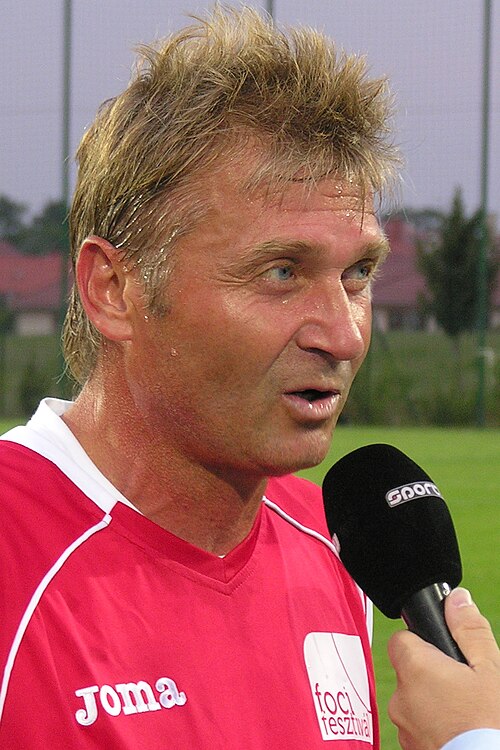
11. Ferenc Bene
Ferenc Bene is a bona fide club legend for Újpest, the team with the second largest (and second most fierce) fan base in Hungary behind Ferencváros, having played 17 seasons for the Budapest violets. He led them to the Inter-Cities Fairs Cup final in 1969, which they lost to Newcastle United. He won the Hungarian league a total of 8 times, and won the domestic Golden Boot five times.
At the 1966 World Cup, he scored the opener against reigning World Champions Brazil in the group game won 3–1 by Hungary; and was part of the 1964 third-place finisher squad at the 1964 Euros, where he got a goal in both the semi-final against hosts Spain and in the third-place play-off against Denmark as well. These are just three of his total 36 goals scored for Hungary in 76 games.
12. Gyula Zsengellér
He is another hero of the 1938 World Cup finalist Hungarian team. He scored in every game in that competition (twice against the Dutch East Indies in the Round of 16, once against Switzerland in the quarter-final, and twice in the semi-final against Sweden) up until the lost final against Italy.
Zsengellér has the second-most goals in the history of the Hungarian league, 387, only behind Ferenc Szusza’s 393. He scored most of those points for Újpest FC, where he spent nine seasons before signing with AS Roma in Italy as the Soviets took over the country. Zsengellér won the Hungarian league four times, and scored 32 goals in 39 games for the national team, cementing his status as one of the great forwards of the pre-war era.
13. Kálmán Mészöly
Known as the ‘Szőke Szikla’ (‘the Blonde Boulder’) in Hungary, he is the only centre-back to make our list of greatest Hungarian footballers—after all, it always has been the least glamorous position.
However, Mészöly’s influence on the 1960s Hungarian team that made it to two World Cups and won a bronze medal at the 1964 Euros is undeniable. He made a total of 61 appearances for the national team, with 6 goals. One of those goals was a converted penalty against Brazil in the much-talked-about group game at the 1966 World Cup that set the final 3–1 scoreline for his side. He spent his entire club career with the Budapest team Vasas, winning four Hungarian league titles with them.
14. Zoltán Czibor
He is the last member of the 1950s 'Golden Team' on our list. Czibor took part in all of their glory, from the 1952 Olympic gold, through the 6–3 victory over England, to the 1954 FIFA World Cup final, playing on the left flank. He scored Hungary's second in the World Cup final in Bern, which was one of the 17 goals he tallied up for Hungary in 43 games.
He won the Hungarian league with Ferencváros in 1949, which is his only domestic championship win, before moving to Honvéd in 1953, then fleeing socialist Hungary in 1956 after the crushed Revolution. He ended up joining FC Barcelona, along with his fellow 'Mighty Magyar' Kocsis, where he collected two La Liga titles.
15. Zoltán Gera
Gera made 172 appearances in the English Premier League—the highest-ranked European domestic competition—for West Bromwich Albion and Fulham between 2004 and 2014. With the latter team, he also made it to the Europa League final in 2010, and scored a winner in the semi-final against Hamburg in the competition.
He was essential in taking Hungary to a major international competition for the first time in 30 years, the 2016 European Championship in France. There, to the surprise of everyone, Hungary even topped their group ahead of Iceland, the eventual winners Portugal, and Austria. In the round of 16, the Magyars lost to Belgium. Gera also scored a beauty from a rebound after a cleared corner against Portugal, a group game that ended in a 3–3 tie.
Zoltan gera vs Portugal 22/6/2016
Uploaded by WRC10 on 2016-06-22.
By that time, he had returned home to Ferencváros, the team he transferred to England from. He won three Hungarian championship titles with Fradi: two before, and one after his decade in English football. His national team record: 97 appearances and 26 goals.
16. Tibor Nyilasi
Another Ferencváros legend, Tibor Nyilasi scored two goals in the 10–1 thrashing of El Salvador by the Hungarians in the 1982 World Cup group stage, a scoreline that remains the largest margin of victory in World Cup history to date. Alas, despite their massive victory, the national team still did not make it out of the group in the World Cup in Spain. He also played at the 1978 Mundial in Argentina; and collected 70 caps for his country with 32 goals scored in total.
In 1975, he led Ferencváros to the European Cup Winners’ Cup final, but fell short against Dynamo Kyiv. He won the Hungarian league twice with FTC, while also taking down the domestic Golden Boot with an impressive 30 goals (especially for an attacking midfielder, and not a forward) in 1981. He was allowed to sign with the Austrian Bundesliga club Austria Wien in 1983, a side that won three championships in a row between 1984 and 1986. For ‘good measure’, Nyilasi got himself a top scorer title in the Austrian league as well, in 1984.
17. Lajos Tichy
He was the most exciting emerging talent in the transitional period of Hungarian football after the shock of the upset loss to West Germany in the 1954 World Cup final, and the many high-profile defections after the 1956 Revolution. Lajos Tichy represented Hungary at two World Cups, 1958 and 1962; and netted a brace in the 4–0 win over Mexico in the former competition. However, that was not enough to let Hungary advance from their group. He followed that up with another double in a 6–1 victory against Bulgaria four years later at the tournament in Chile, with Hungary topping their group that time. Two years later, he was a member of the 1964 bronze medal-winning squad at the European Championship as well.
He spent his entire club career with Budapest Honvéd, topping the domestic league with them twice. Tichy made 72 appearances and scored an impressive 51 goals for the Hungarian national team.
18. Gábor Király
If you ask any football fan in Germany or England what they remember goalkeeper Gábor Király for, they almost certainly answer his signature grey tracksuit bottoms. However, evidently, he has put in many memorable performances in goal as well.
He was the keeper for the Hungarian national team that qualified for the nation’s first major tournament in 30 years, the 2016 Euros in France. That was at the tail end of his career: he even broke the record for the eldest player to play a game in the European Championship at 40.
Prior to that, he played nearly 200 German Bundesliga games and 10 UEFA Champions League games for Hertha Berlin—the fans of which voted him the best goalkeeper in their club’s history. With Crystal Palace and a short loan stint at Aston Villa, he collected 37 appearances in the English Premier League as well. Additionally, with 108 games for the Hungarian national team, Király is currently ranked second on the all-time appearances list for the country.
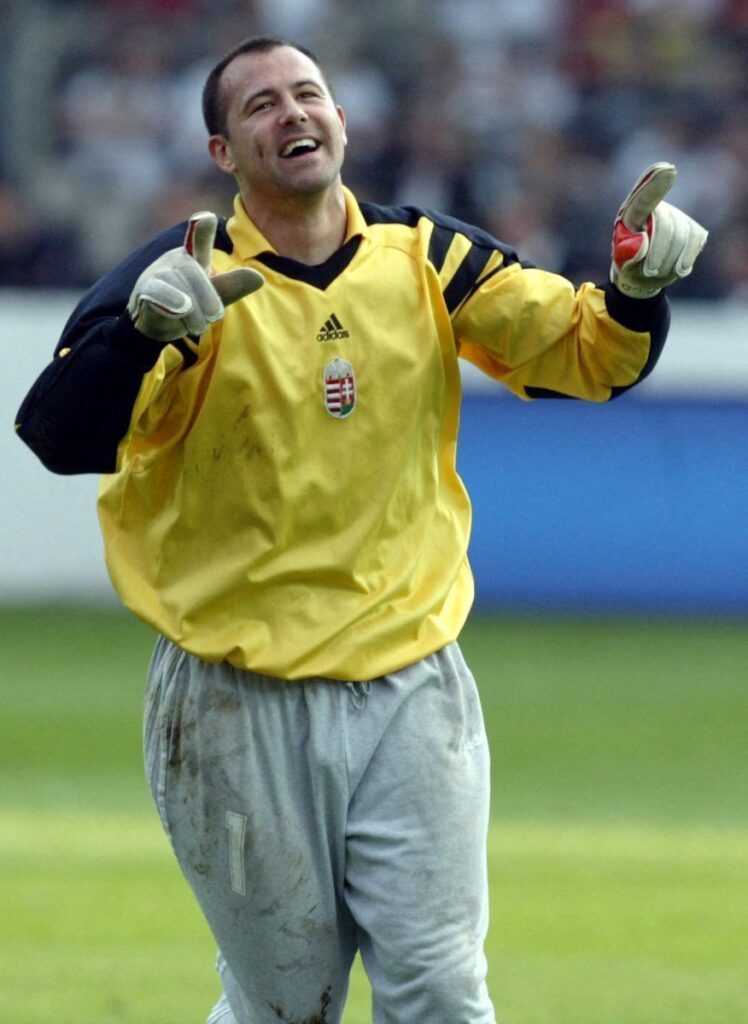
19. Balázs Dzsudzsák
First on that list is Balázs Dzsudzsák with 109 caps, setting the record in 2022. His goal tally for Hungary stands at 20. He has since retired from international duty; however, at age 38, he is still playing for his boyhood club Debrecen—in fact, they are currently on top of the Hungarian league! He already has three league titles with them from his first stint with the club in the mid-2000s.
Dzsudzsák was an outstanding talent at the Dutch club PSV Eindhoven, being crowned champions in the domestic league Eredivisie in 2008. However, he disappointed the whole Hungarian football fan base after he signed with Anzhi Makhachkala in Russia in 2011, instead of a club in one of the big four European leagues, which he undoubtedly had the opportunity to do.
Although his club career never returned to the heights of his PSV days, he redeemed himself with Hungary fans by leading the national team to the 2016 Euros, where he scored two goals in the 3–3 tie against Portugal.
20. József Kiprich
After Dzsudzsák, here is another Hungarian man with an unusual last name to make his mark on Dutch club football. Striker József Kiprich won the Dutch league in 1993 and also won the Dutch Cup four times with Feyenoord, where he spent six fruitful seasons. He also played in the last World Cup that Hungary qualified for, in 1986 in Mexico. Kiprich made 70 appearances and scored 28 goals for the Hungarian national team to end our list.
Related articles:

